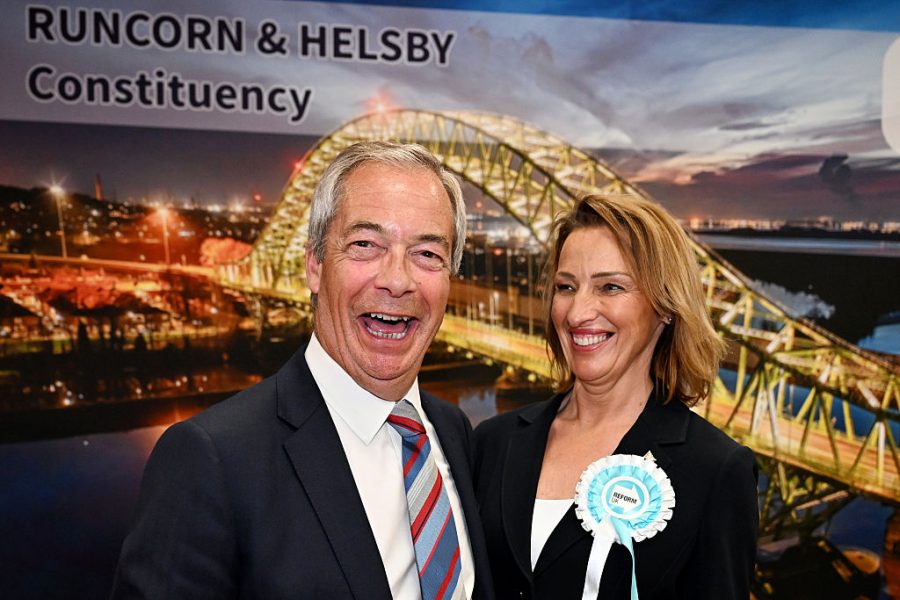There is little disguising what is surely going to be the prevailing story as council election results pour in from lunchtime onwards: Reform UK has had a very good night, Labour a poor one and the Conservatives a disastrous one. To win a by-election – even by just six votes – in Runcorn, will enliven Reform, especially following the civil war which threatened after Rupert Lowe’s ejection from the party. However, as we found with the SDP in the 1980s, by-election victories can give challenger parties false hope: they will not necessarily save them from a meltdown in a subsequent general election.
But it is a remark from a Labour campaigner in the Runcorn by-election, reported on the BBC, which provides the most illuminating comment on that contest and probably on the whole election night. On the doorstep, she said, ‘It was all PIP and winter fuel payments’.
Reform is now the party standing up for industrial jobs
The good voters of Runcorn, in other words, seem to have flocked to Reform because they found both Labour and the Tories insufficiently left-wing. They want higher public spending, more handouts – and hang the cost. It is a triumph for Nigel Farage’s political judgement in taking his party to the left on economic issues.
The principal message to have come out of Reform in this contest is that it is in favour of more nationalisation. The plight of British Steel has given the party a huge opportunity in Red Wall areas – Reform is now the party standing up for industrial jobs.
There is, though, a complication: Reform’s victorious candidate in Runcorn, Sarah Pochin, personally supported means-testing of winter fuel payments – in contrast to the position taken by Farage, who has called their removal from better-off pensioners as ‘vindictive’. Either voters took more notice of Reform’s leader than its candidate – or Reform might have won by a bigger margin in Runcorn.
For the Conservatives, Reform’s successful tilt to the left provides good and bad news: good because it means that Reform is no longer occupying the same political space, and no longer looks so much like dividing the right-wing vote. But it is also bad news because it shows that the public is no mood yet to sympathise with Conservative causes such as the free market and a small state.
Indeed, it is quite depressing to think that the message about needing to mend Britain’s appalling public finances is failing to cut through. Borrowing over the past twelve months has been £152 billion – right up there with the deficit left behind by Gordon Brown’s government, when there was far greater public acceptance of the problem: that Britain faces national bankruptcy if the yawning gap between revenue and expenditure continues to frighten bond investors.
Runcorn may not reflect the result everywhere: in better-off parts of the country, Reform’s stance on benefits may prove a lot less popular. But it does seem as if the Conservatives’ best chance of returning to power will be for the public finances to descend into an even worse state over the next four years, perhaps to a Denis Healey-esque situation where Britain faces the humiliation of being forced to beg the IMF for a bailout. That would put Reform in the wrong place politically – and possibly lead to the words ‘Tory austerity’ becoming an asset rather than a liability.







Comments